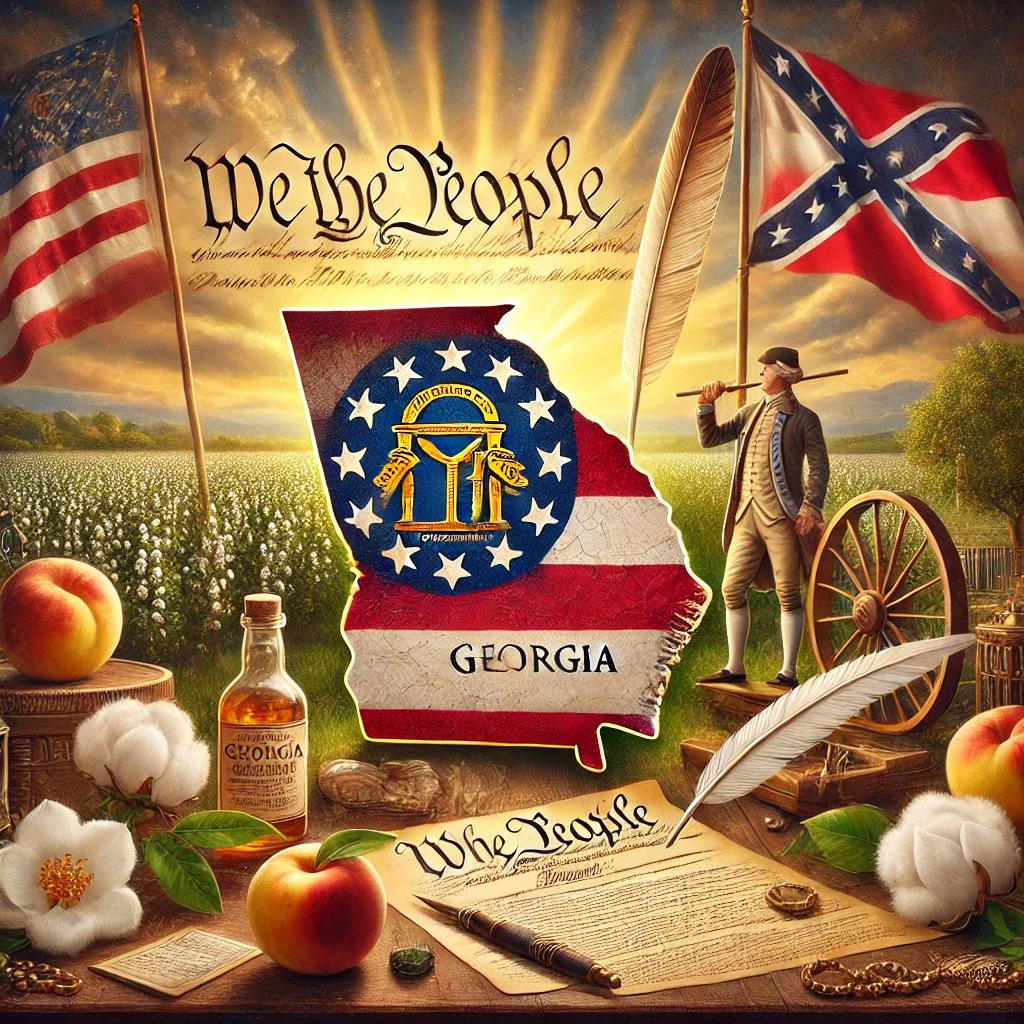On January 2nd, 1788, Georgia became the fourth state to join the United States, marking a crucial moment in the formation of the young nation. Located in the southeastern part of the country, Georgia’s admission into the Union played a significant role in the development of the American South. With its rich history, diverse landscape, and strategic importance, Georgia has since become a key player in both regional and national affairs.

The Road to Statehood
Georgia’s path to statehood was shaped by its early colonial history and its role in the American Revolution. Initially founded in 1733 as the last of the 13 original American colonies, Georgia was established by James Oglethorpe as a haven for debtors and the poor. Over the years, it grew into a thriving agricultural colony, known for producing rice, indigo, and, later, cotton. During the Revolutionary War, Georgia was one of the 13 colonies that fought for independence from Great Britain. The state’s support for the revolutionary cause cemented its place in the new United States.
However, Georgia faced significant challenges in the years following independence. The state’s economy and political structure were deeply affected by the war, and like many of its southern counterparts, Georgia’s reliance on slavery for agricultural production became a central issue. Despite these challenges, Georgia was an early advocate for the creation of the U.S. Constitution and played an important role in the debates leading up to the drafting of the document. By 1788, after the Constitution had been ratified by several states, Georgia officially joined the Union.

Georgia’s Role in the Early U.S. Republic
As the fourth state to join the Union, Georgia played a crucial role in the early years of the United States. The state’s economy, primarily based on agriculture, became a key component of the Southern economy. Its plantations, worked largely by enslaved Africans, contributed to the growth of the cotton industry, which would become the backbone of the Southern economy for much of the 19th century.
In addition to its economic contributions, Georgia also had a significant impact on the development of the federal government. Many of Georgia’s leaders, including William Few and Abraham Baldwin, were involved in the creation of the U.S. Constitution and helped to shape the nation’s political framework. The state’s early political leaders advocated for a strong central government, which was important during the formative years of the United States.
The Legacy of Georgia’s Statehood
Georgia’s admission to the Union set the stage for its long and complex history within the United States. Over the years, the state has been a key player in the development of the American South, with its economy and culture heavily influenced by agriculture, particularly the cotton industry. The state’s role in the Civil War, its relationship with slavery, and its post-war Reconstruction efforts have all been significant aspects of its history.

Georgia’s legacy extends beyond its political and economic contributions. Today, the state is known for its vibrant culture, diverse population, and historical significance. From its early days as a colony to its current role as a major hub for business, education, and entertainment, Georgia continues to play an important role in the fabric of the United States.
Georgia’s entrance into the Union on January 2nd, 1788, marked a pivotal moment in the history of the United States. As the fourth state to join the Union, Georgia helped shape the direction of the new nation, both economically and politically. The state’s rich history, rooted in its agricultural economy and its central role in the formation of the U.S. government, continues to have a lasting impact on the American South and the country as a whole. Today, Georgia remains a key part of the United States, continuing to influence the nation’s growth and development.
